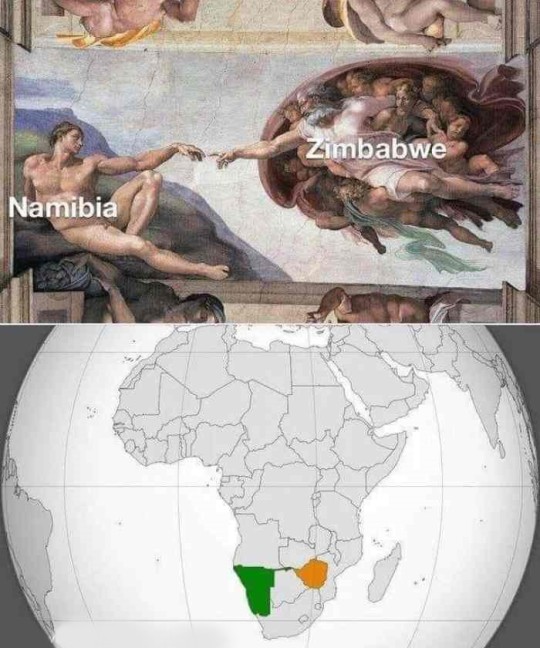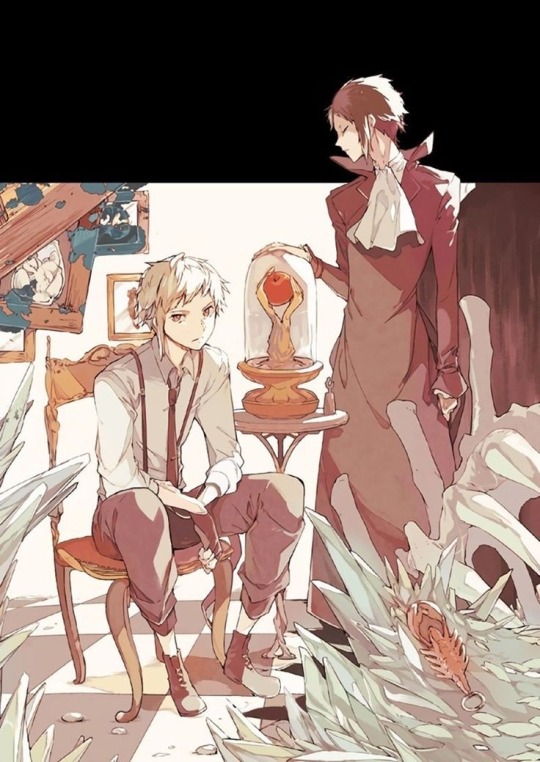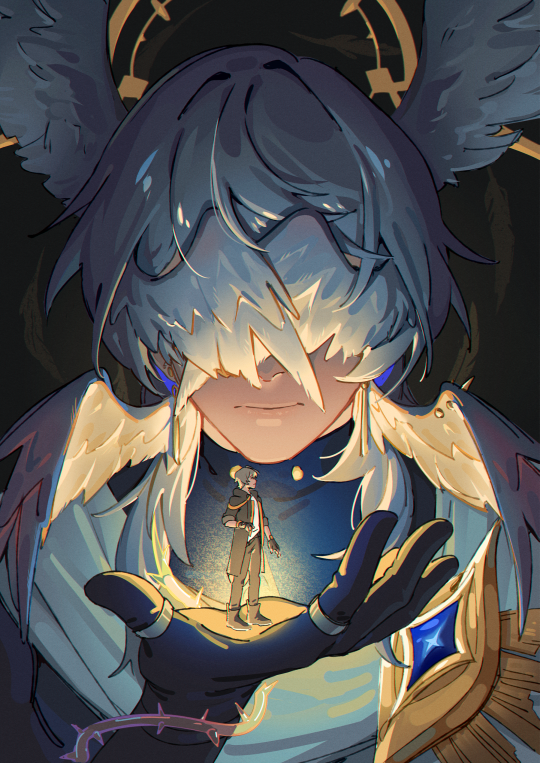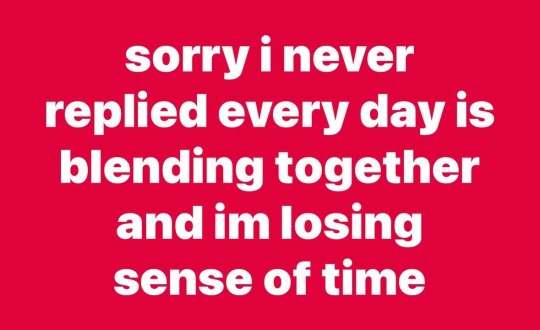will ramble or shitpost about anything i like🍁❤️mostly related to animanga? i love collecting art and analyzing stuff!
Last active 2 hours ago
Don't wanna be here? Send us removal request.
Text
on Dazai and Chuuya:
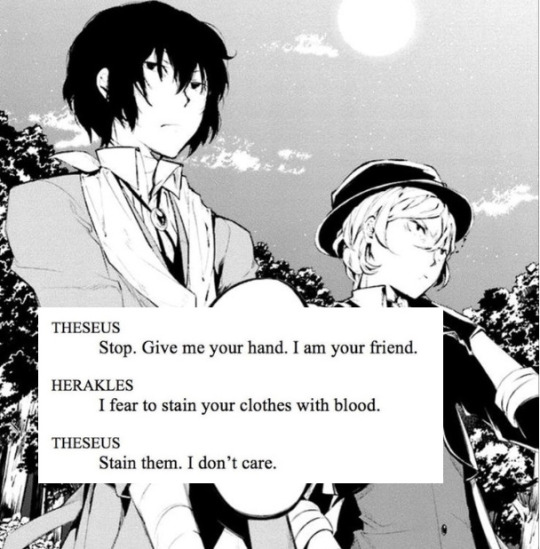

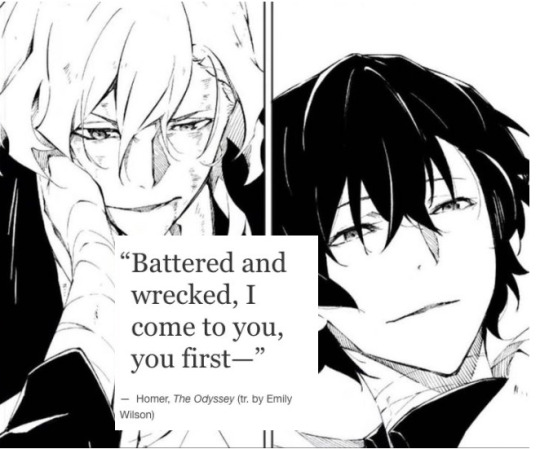


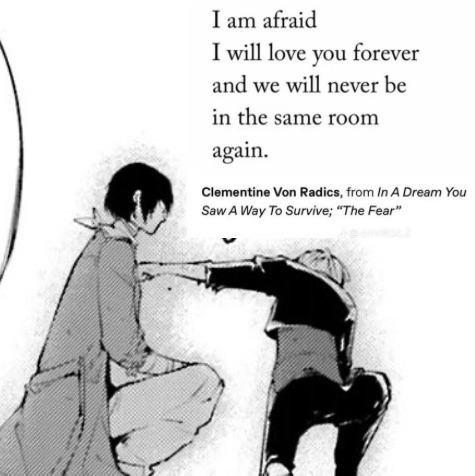

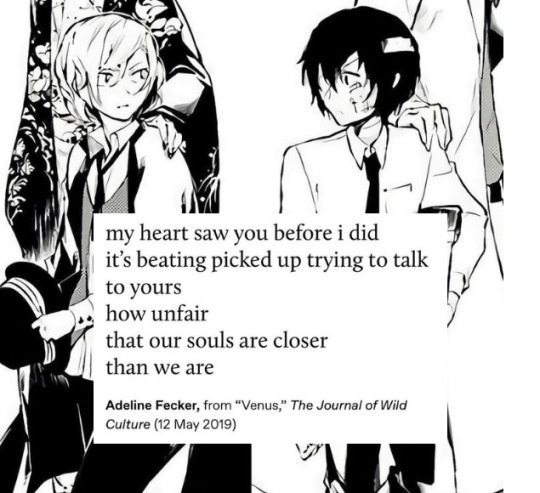
im thinking about them again
287 notes
·
View notes
Text

A little fluff break! I’m still chopping away at comms while balancing college work. I was thinking of making more content that was about my OCs. I would still do skk stuff (I cannot escape them) but it would be a mixture of both! What do you guys think?
2K notes
·
View notes
Text
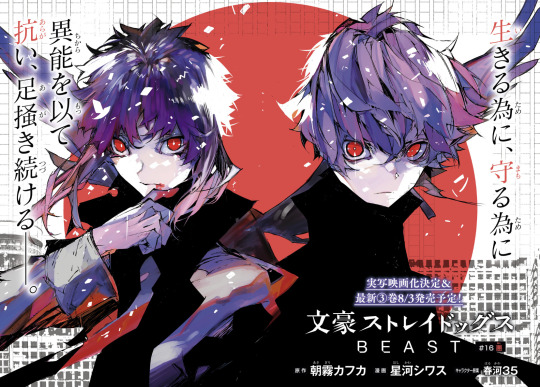
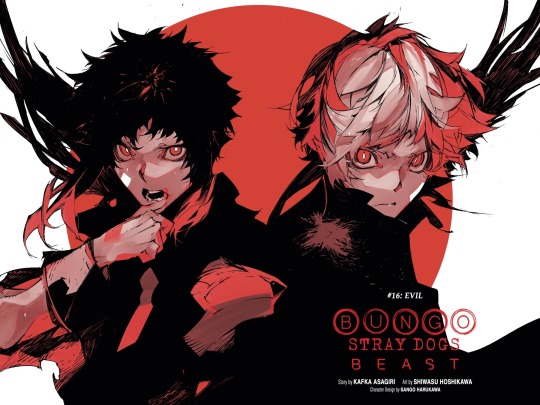
It looks like the chapter 16 color spread was redone in occasion of the fourth volume publication
284 notes
·
View notes
Text

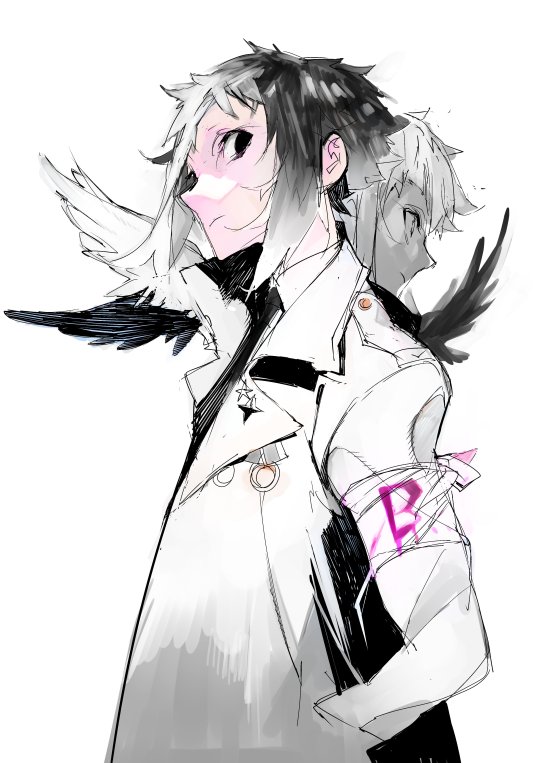

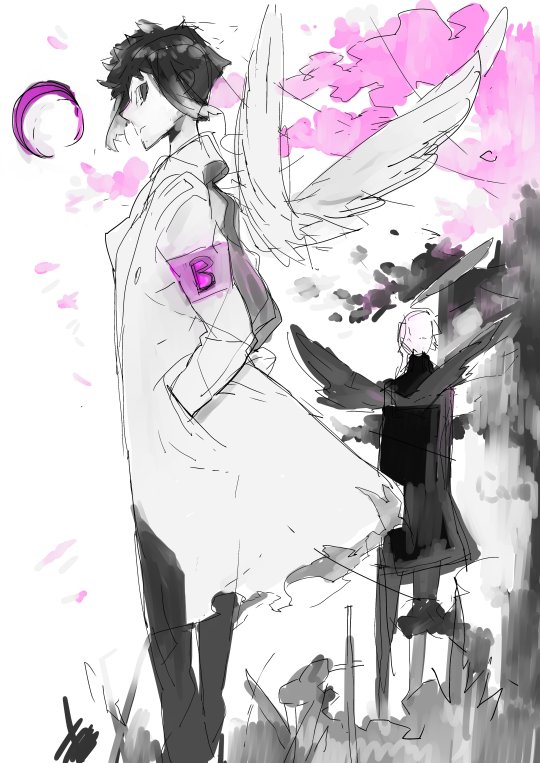

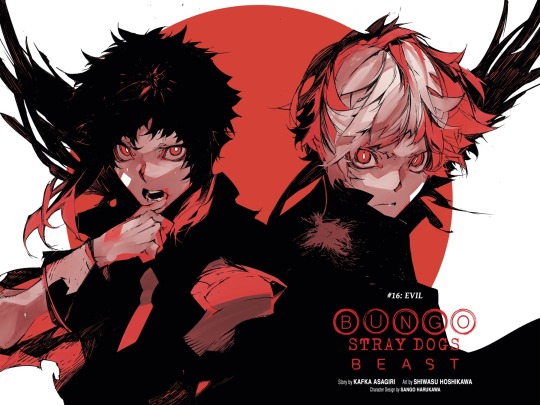
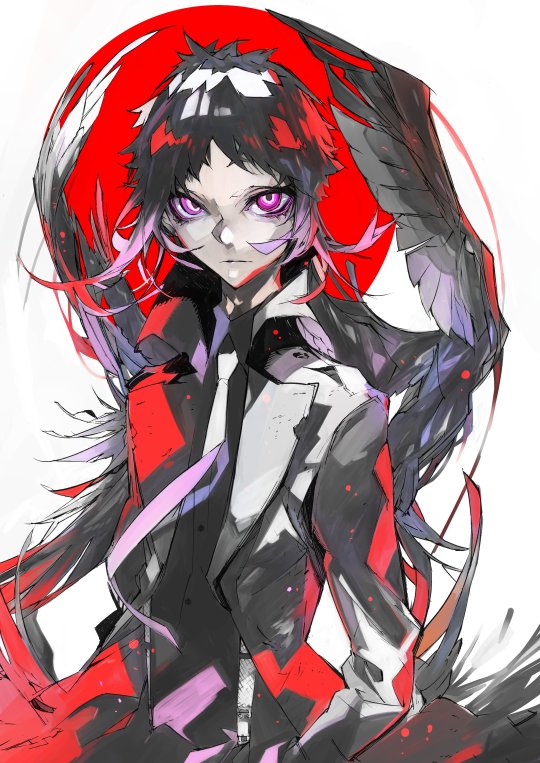

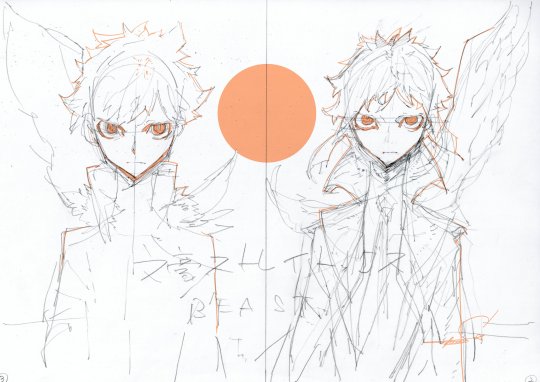
Nooooooo don't make it look like one of us had one black wing and the other had one white wing and we were soulmates destined to complete each other the audience is going to think we're gay what are you doing stop
612 notes
·
View notes
Text





There's at least five different versions of this cover
56 notes
·
View notes
Photo

♧ authorized reprint for tumblr // artist: 𓁠オオハシ科 / -
✿ please do not remove source link// edit illustration // change caption // upload to other websites!
728 notes
·
View notes
Text
How to download ANY *working* audio post from tumblr
Okay so I’ve been using this method for a few years now to download most of my music and apparently a lot of people don’t know how to do it so I thought I’d share. This method works for any working audio post on tumblr and you won’t lose any of the quality of the audio post like you do with some Youtube converters. This method only works for GOOGLE CHROME. I’m sure you can do it with other browsers, I just don’t know how. Chrome is free though so it shouldn’t be a problem. Okay so:
1. Open up tumblr and find the audio post(s) you want to download. (don’t press play yet!!)
2. RIGHT click over the center-ish of the audio post (mac users click control then click to right click)
3. Click “inspect element”
4. Click “network”
5. Click “size”
6. Click the play button on the audio post and let it play for a few seconds until the audio file shows up (you don’t have to listen to the whole thing).
7. Right click where it says “from cache” in the size column. This should be the audio file.
8. Click “open in a new tab”. A new tab with a black screen and the audio file should open.
9. Right click anywhere in the black screen, then click “save as”.
10. Save your file and enjoy!!
*PC users will need to drag the mp3 file from your downloads to iTunes; Mac users can just open the file after it has downloaded and it will automatically open in iTunes
**you can change the name of the song/artist/album/artwork after the file is in iTunes. Just right click then click “get info” and edit away!
I hope this was helpful!! I know this seems like a lot of steps but once you get the hang of it, it’s really fast and easy. :)
***UPDATE: IF YOU HAVE XKIT THERE IS AN EXTENSION THAT ALLOWS YOU TO DO THIS MUCH SIMPLER. IT’S CALLED “AUDIO DOWNLOADER” OR SOMETHING LIKE THAT :)
3K notes
·
View notes
Text
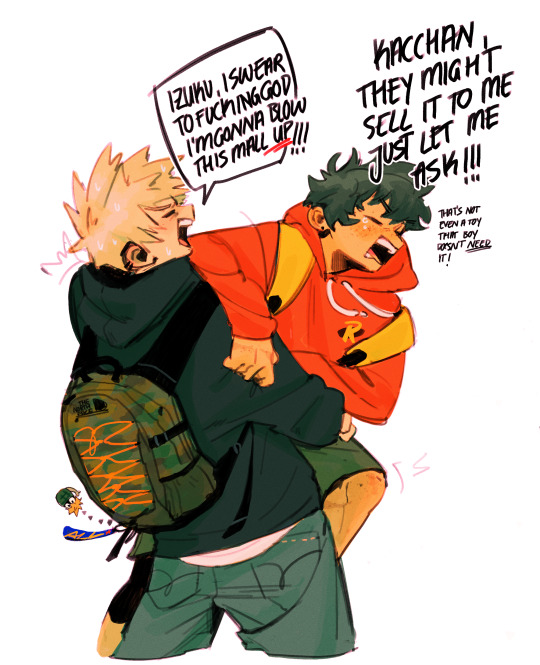
he really wanted that vintage All Might action figure
12K notes
·
View notes
Text


I love seeing these two pictures side by side, I feel like they express a lot of Chuuya's character's growth. I love how the figure on the right seems like completing the left hand gesture of the other. I love evident it is that Chuuya's stance grew to be more firm and confident as he got older. These pictures put one next to the other feel like portraying the fulfilment of Chuuya's character as a whole, it makes me happy to see them.
95 notes
·
View notes




